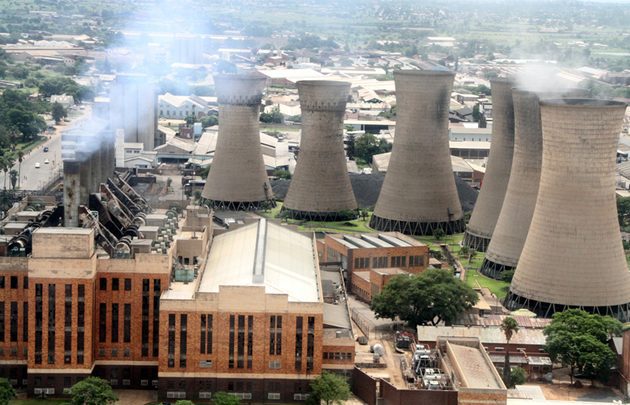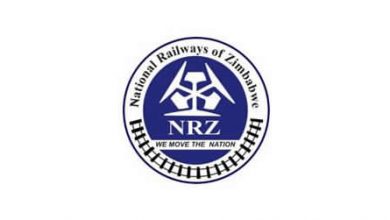Residents speak on Byo Power Station takeover bid

Residents have advised the Bulawayo City Council (BCC) to conduct due diligence on the capacity of the Bulawayo Power Station before attempting to reclaim it from the Zimbabwe Electricity Supply Authority (ZESA) Holdings, otherwise, they will be taking over something that will not generate power but incur additional costs.
During the ongoing public consultations on the proposal to transfer Bulawayo Power Station to ZESA Holdings, residents urged the BCC to first do its homework on the power station’s lifespan as well as how many megawatts of power are produced before making a decision to either sell, reclaim, enter into an equal partnership or totally cancel the deal.
Built in 1987, the iconic station was used by the city to generate its own electricity until ZESA took over in 1987, said Mpazamiso Ndebele, IT manager at the BCC Finance Department to Ward 2 residents.
“In 1996, an agreement was made that ZESA must pay BCC royalties using an agreed formula of the number of electricity units sold multiplied by a predetermined rate. This occurred between 1996 and 2008, when ZESA failed to meet its intended obligation,” he said.
BCC still owns the power station’s title deeds while ZESA drafted a Memorandum of Understanding (MoU) last year for council to sign in order to finalise the sale and recognise Zimbabwe Power Company (ZPC) (Private) Limited as the owner.
“ZESA approached the sitting council with its own proposal to sign an MoU to facilitate negotiations on the following terms that BCC irrevocably concluded negotiations on the transfer of ownership of the power generation and associated infrastructure at Bulawayo Power Station. I think ZESA wanted a loan to refurbish something but you are supposed to have collateral but the title deed is still with council.” said the council official.
Ndebele stated ZESA is committed to continuing negotiations with BCC, but because BCC represents the people, it has to engage residents on what should be done.
“There were some proposals that the council sell the power station to ZESA. The advantage is council will get money to fund other critical infrastructure such as public works, sewage and water,” he said.
The disadvantage is BCC will lose the ability to claim royalties even if they are not received on time, he added.
“Council will also lose the legacy of Kontuthu Ziyathunqa,” Ndebele said, noting that phrase emerged from the cooling towers, as the facility is known as the “smoke that bellows.”
The option is for BCC to partner with other service providers to provide energy.
“For example, councillors will tell you they are discussing partnering with someone to generate solar to power energy at the dams. This is just a discussion so that when there is a challenge council can manage to pump water,” he said.
“The disadvantage is the council will lose the guaranteed supply of energy to the city.”
Ndebele said the second option was to maintain the status quo where ZESA pays royalties to BCC.
“Advantage is we are assured of cash flows, the city remains in control and ownership of the property. Council also has the option to engage the best partner if the current partner fails to deliver,” he said.
“The disadvantage is over the dispute on royalty calculation resulting in ZESA relegating to own up to the agreement. A change in government may also result in a change in the agreement.”
The third option, according to Ndebele, is to have a shareholding and an equal partnership between BCC and ZESA.
“This will enable all parties to come up with balanced agreements. It will also assist in identifying and addressing current challenges faced in the current agreement. Current royalties arrears can be converted to shares but the disadvantage is this may prolong the current negotiation and delays as the government is involved,” he stated.
The fourth option is for BCC to cancel the agreement with ZESA, said the council official.
“The advantage is that legislation allows and lawyers said BCC can have independent players in power generation. If BCC cancels, it can sell to other players who can use it. This could be an opportunity to restrategise on the use of the power station,” Ndebele said.
But the problem is it may take time to identify a suitable partner, he added.
“This option may also result in legal battles with ZESA if they resist BCC from taking the power station from them. These are the four options but there could be more,” Ndebele said.
Residents responded by saying that BCC should conduct thorough research on the power generation capacity and lifespan, despite claims that it has “expired” and be honest as to whether the council will be able to run it if they take over.
Residents also expressed concern that Bulawayo had “already lost eGodini, which is still under construction over a decade later.”
In 2019, the electricity utility recommended demolition of two cooling towers at the iconic station claiming their dilapidated state posed a risk to residents.
Residents, however, fiercely opposed the move, claiming the power station was sentimental.
BCC and ZESA have been involved in legal battles over ownership of the power station, with the local authority claiming last year that it would part with the title deeds to the Bulawayo Power Station if the ZPC paid US$60 million in royalties.






